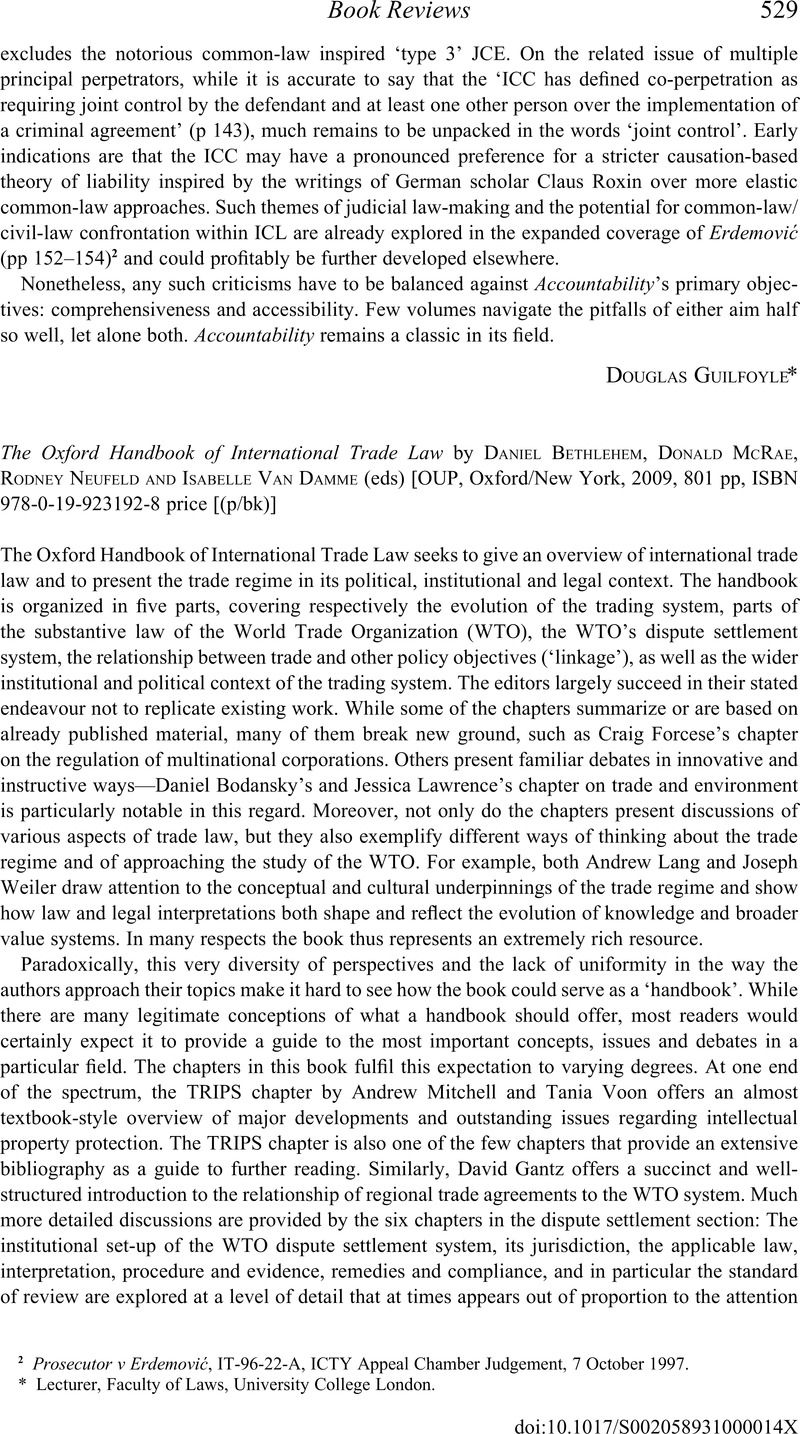No CrossRef data available.
Article contents
The Oxford Handbook of International Trade Law by Daniel Bethlehem, Donald McRae, Rodney Neufeld and Isabelle Van Damme (eds) [OUP, Oxford/New York, 2009, 801 pp, ISBN 978-0-19-923192-8 price [(p/bk)]
Review products
Published online by Cambridge University Press: 14 May 2010
Abstract

- Type
- Book Reviews
- Information
- Copyright
- Copyright © 2010 British Institute of International and Comparative Law
References
1 Robert Howse, for example, discusses the WTO's legitimacy in light of the different forms of power that the WTO exercises; see R Howse, ‘The Legitimacy of the World Trade Organization’, in J-M Coicaud and V Heiskanen (eds), The Legitimacy of International Organizations (Tokyo/New York/Paris, United Nations University Press, 2001) 355–407; see also R Howse and K Nicolaidis, ‘Enhancing WTO Legitimacy: Constitutionalization or Global Subsidiarity?’ [2003] Governance 73–94.
2 See G Marceau and JP Trachtman, ‘The Technical Barriers to Trade Agreement, the Sanitary and Phytosanitary Measures Agreement, and the General Agreement on Tariffs and Trade. A Map of the World Trade Organization Law of Domestic Regulation of Goods’ [2002] Journal of World Trade 811–881. Adapted versions of the article are published in: F Ortino and E-U Petersmann (eds), The WTO Dispute Settlement System 1995–2003 (Kluwer Law International The Hague/London/New York, 2004) and GA Bermann and PC Mavroidis (eds), Trade and Human Health and Safety, (New York, Cambridge University Press, 2006).
3 The expression ‘negotiating machine’ is a quote from the Report by the Consultative Board to the Director-General Supachai Panitchpakdi, The Future of the WTO: Addressing Institutional Challenges in the New Millennium (World Trade Organization, Washington, DC, 2004) 61.


